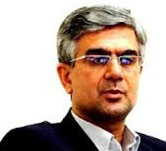Response of Strength, Power and Muscle Endurance to Resistance Training with Different Rest Intervals
Author(s):
Abstract:
Researchers and coaches are constantly looking for the most effective ways to enhance athletic performance. The aim of this study was to investigate the response of strength, power and muscle endurance to resistance training with different rest intervals. 16 male volunteers were selected and divided randomly into two groups. Group A (n=8, age 22±2.55 yr, height 174.20±6.14 cm, weight 64.20±6.33 kg) performed resistance training with constant rest intervals (120 sec.) and group B (n=8, age 22±3.54 yr, height 176.40±6.50 cm, weight 64.60±6.38 kg) with incremental rest intervals (90, 120, 150 sec.) 3 days per week for 6 weeks. To determine strength, power and muscle endurance, 1RM, bench press, throwing medicine ball and maximum repetition of bench press with 30% of 1RM tests were used respectively. Blood samples were collected 3 minutes before and 2 minutes after the 17th session to measure blood lactate. Paired samples and independent samples t tests were used for data analysis (α<0.05). Results showed that strength, power and muscle endurance significantly increased in both groups (P<0.05), but group B showed a greater percentage change in all tests. Blood lactate significantly increased after the resistance training compared with the rest interval but this increase was less in group B. It can be concluded that resistance training with progressive rest intervals is more important for increasing strength, power and muscle endurance compared with constant rest intervals.
Keywords:
endurance , lactate , power , rest interval , strength
Language:
Persian
Published:
Sport Biosciences, Volume:7 Issue: 24, 2015
Pages:
77 to 91
https://magiran.com/p1421807
سامانه نویسندگان
مقالات دیگری از این نویسنده (گان)
-
The Effect of Saffron Extract During Resistance Training on BDNF Protein Expression in the Hippocampus of Rats with Type 2 Diabetes
*
Iranian Journal of Diabetes and Lipid Disorders, -
Studying GLUT5 protein levels in response to diabetes and endurance training in the EDL muscle of mice
Farkhondeh Garavandpour, *, Rasoul Eslami
Yafteh, -
The role of olfactory sensory neurons in improving working memory following aerobic exercise training in adult male rats
Farzaneh Zeynali, Mohammad Shariatzadeh Joneydi *, Jalaledin Noroozi, , Mohammad Reza Raoufy
Sport Physiology, -
The role of neurotransmitters (serotonin and dopamine) in central nervous system fatigue during prolonged exercise
, Leila Fasihi *
Journal of New Approaches in Exercise Physiology, Winter and Spring 2023




